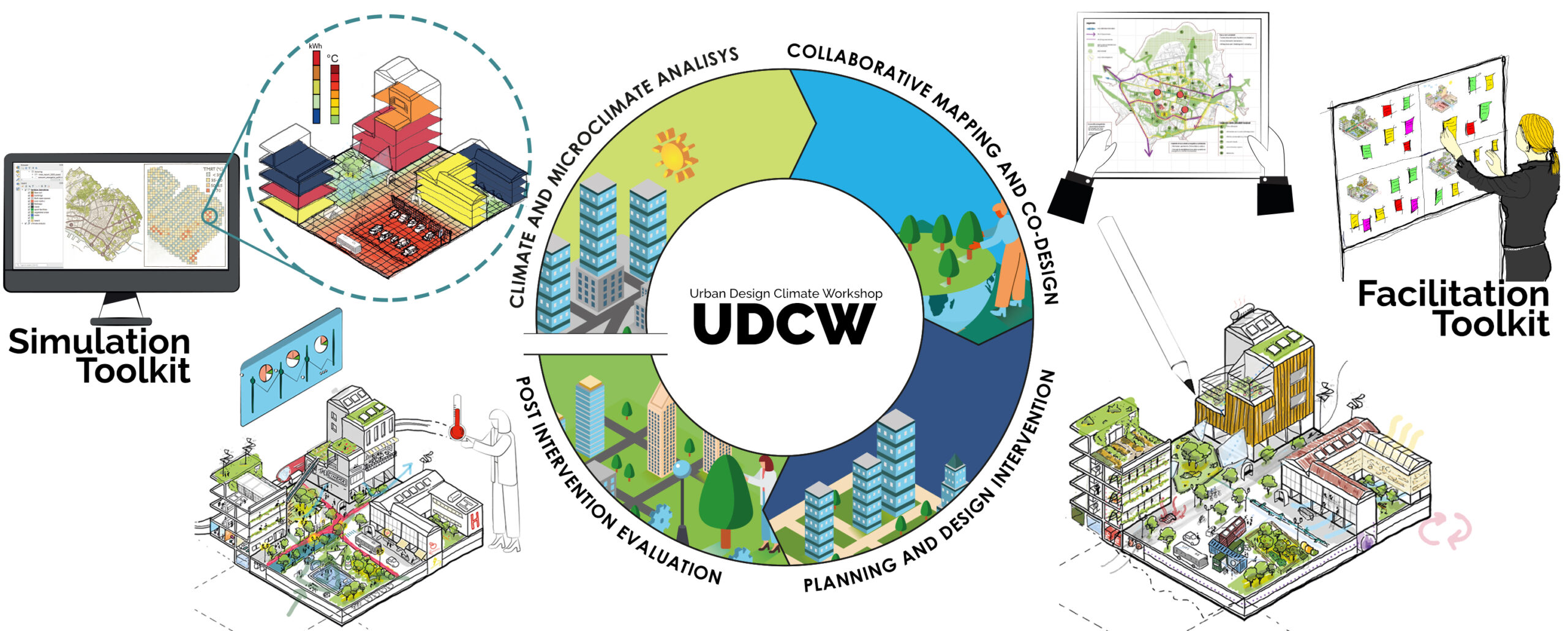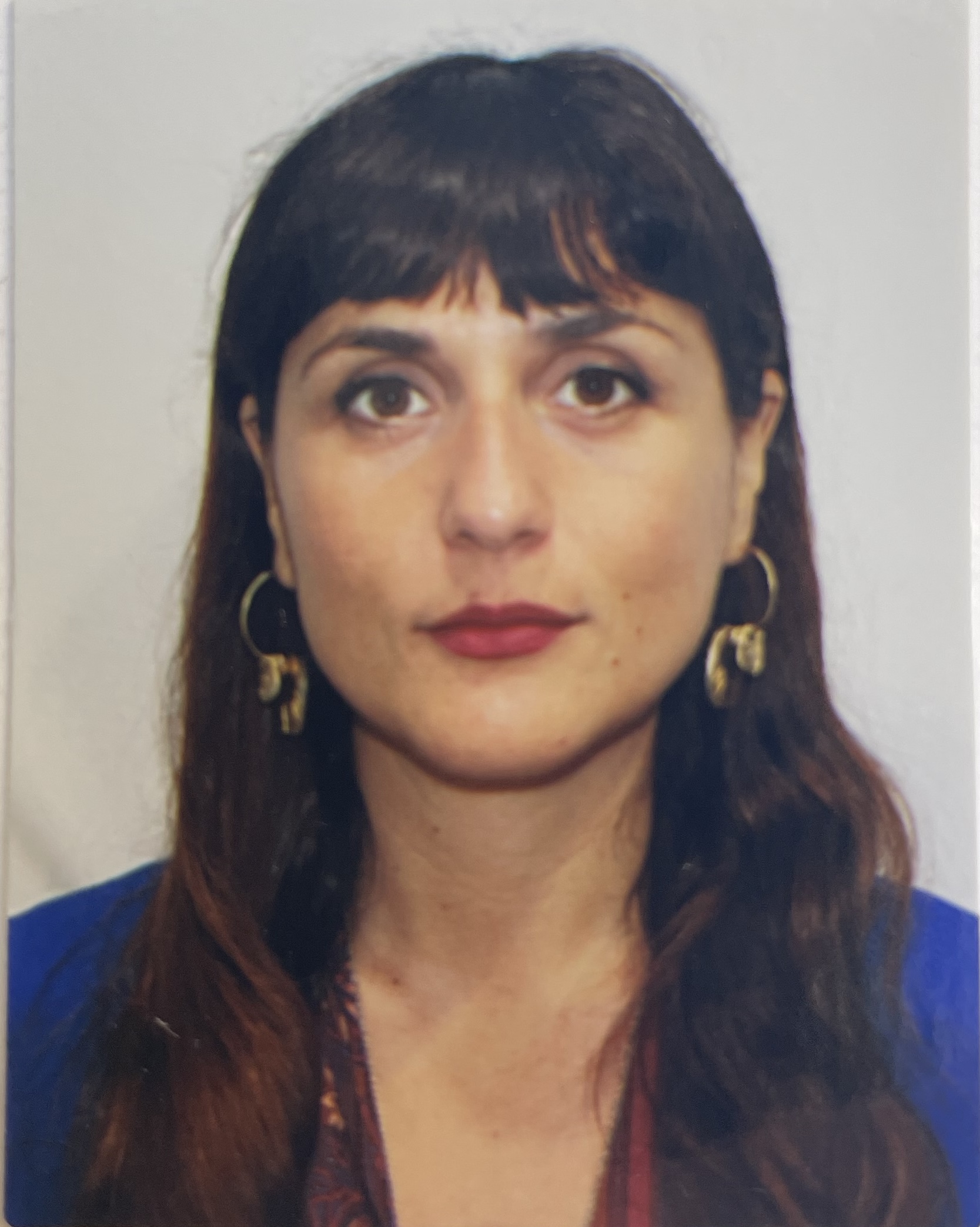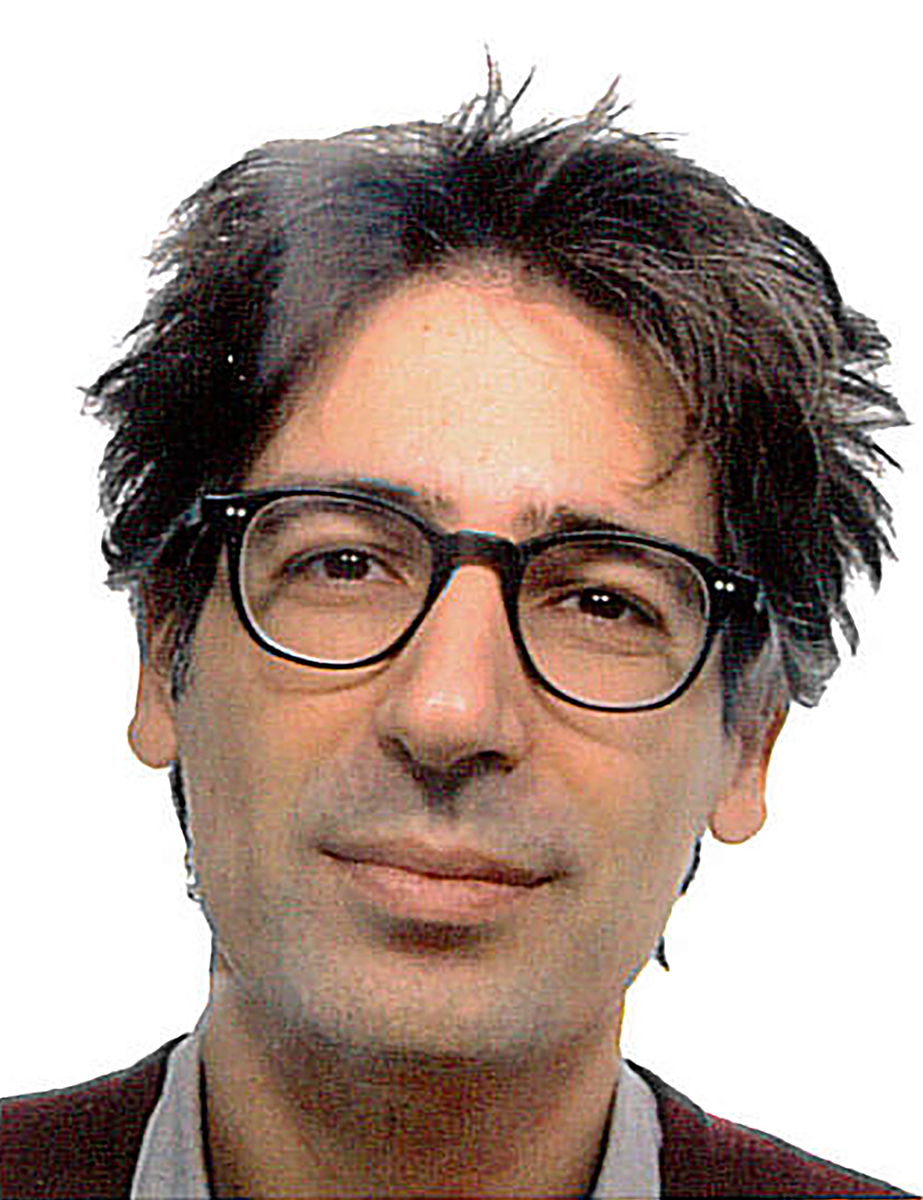
The Urban Design Climate Workshop (UDCW) is a hybrid toolkit that combines simulation tools and facilitation methodologies to support climate-responsive urban planning. Developed by the Urban Climate Change Research Network (UCCRN), the UDCW enables cities to integrate urban climate design principles into planning and design processes at multiple scales (urban, neighborhood, and building). The toolkit consists of two key components. The Simulation Toolkit performs science-based climate hazard assessments (e.g., heatwaves, flooding) using IPCC AR6 and EU Taxonomy-compliant methodologies; evaluates adaptation and mitigation scenarios using quantitative indicators such as outdoor comfort, energy demand, and solar potential; and links climate benefits to social, economic, and environmental co-benefits. The Facilitation Toolkit engages local communities and stakeholders in co-design processes, identifies and visualizes local needs and priorities, and supports the training of municipal experts using design-friendly, neighborhood-scale tools. Together, the UDCW promotes evidence-based and participatory planning, guiding cities toward just and climate-resilient development.
In Rio de Janeiro, the Urban Design Climate Workshop (UDCW) supports the city’s Sustainable Development and Climate Action Plan (PDS), aligning with three strategic themes: Mitigation, by assessing design strategies that contribute to Rio’s carbon neutrality target by 2050; Adaptation, through simulations of nature-based solutions (NBS) and green-blue corridors to reduce flooding and urban heat; and Inclusivity & Equity, by guiding the design of public spaces and housing that improve resilience and access for vulnerable groups. In São Cristóvão, UDCW simulations helped prototype sustainable corridors based on four dimensions: mobility densification (Brown), social policy implementation (Orange), vegetation connectivity (Green), and water-sensitive design (Blue). Workshops with city departments, including IPP, COR, and SMAC, further supported capacity-building, encouraged interdepartmental collaboration, and identified synergies with other UP2030 tools, such as the DELTARES flood modeling.
In Thessaloniki , the UDCW supports the transformation of a central neighborhood into a sustainable, inclusive, and climate-resilient area. Its contributions include simulating heatwave risk and testing adaptation interventions; assessing outdoor comfort, building retrofitting opportunities, and photovoltaic (PV) integration; co-designing urban solutions that are green, affordable, and socially inclusive; and supporting the development of the District Climate Action Plan through the use of science-driven indicators.
Cristina Visconti
visconti.cri@gmail.com

Mattia Leone
mattia.leone@unina.it




